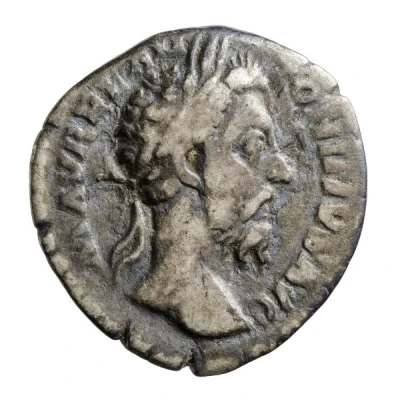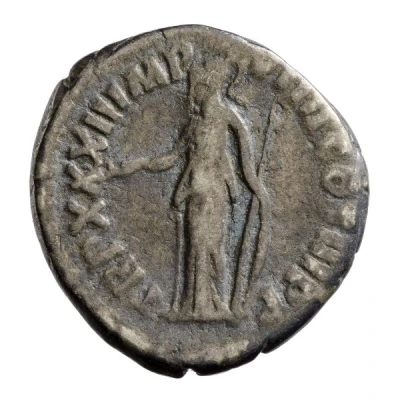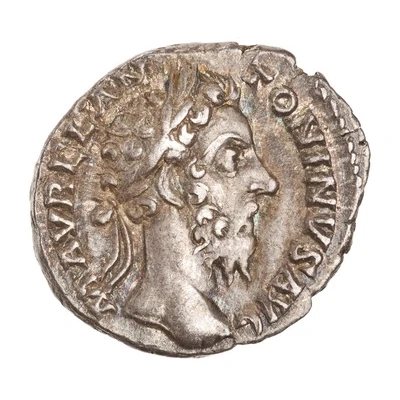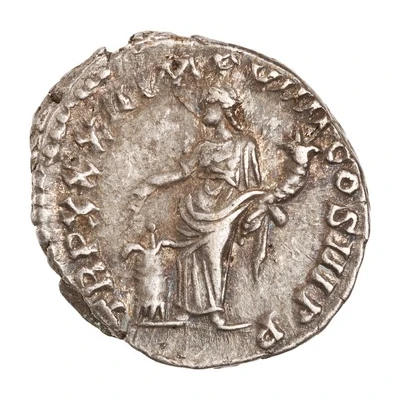


© Münzkabinett der Universität Göttingen (CC BY-NC 4.0 DE)
Denarius - Marcus Aurelius TR P XXXII IMP VIIII COS III P P; Minerva
| Silver | 2.9 g | - |
| Issuer | Rome › Roman Empire (27 BC - 395 AD) |
|---|---|
| Emperor | Marcus Aurelius (Marcus Aurelius Antoninus) (161-180) |
| Type | Standard circulation coin |
| Years | 177-178 |
| Value | 1 Denarius |
| Currency | Denarius, Reform of Augustus (27 BC – AD 215) |
| Composition | Silver |
| Weight | 2.9 g |
| Shape | Round (irregular) |
| Technique | Hammered |
| Demonetized | Yes |
| Updated | 2024-10-05 |
| Numista | N#263057 |
|---|---|
| Rarity index | 100% |
Reverse
Minerva, helmeted, draped, standing left, holding up olive-branch in right hand, left hand resting on shield set on ground: vertical spear, point upwards, rests against left arm.
Script: Latin
Lettering: TR P XXXII IMP VIIII COS III P P
Translation:
Tribunicia Potestate Secunda Tricesima, Imperator Nonum, Consul Tertium, Pater Patriae.
Holder of tribunician power for the 32nd time, supreme commander (Imperator) for the ninth time, consul for the third time, father of the nation.
Comment
Mass varies: 2.616–3.214 g;Example of this type:
Münzkabinett der Universität Göttingen
Source:
Online Coins of the Roman Empire (OCRE)
Interesting fact
The Denarius coin featuring Marcus Aurelius and Minerva was minted during a time of significant cultural and religious change in the Roman Empire. The reverse side of the coin depicts Minerva, the goddess of wisdom, holding a spear and a shield, symbolizing the power and wisdom of the Roman Empire. This imagery was particularly significant during Marcus Aurelius' reign, as he was known for his philosophical writings and his emphasis on reason, wisdom, and intellectual pursuits. The coin's design reflects the cultural values and beliefs of the time, and it provides a unique insight into the religious and political climate of the Roman Empire during the 2nd century AD.

